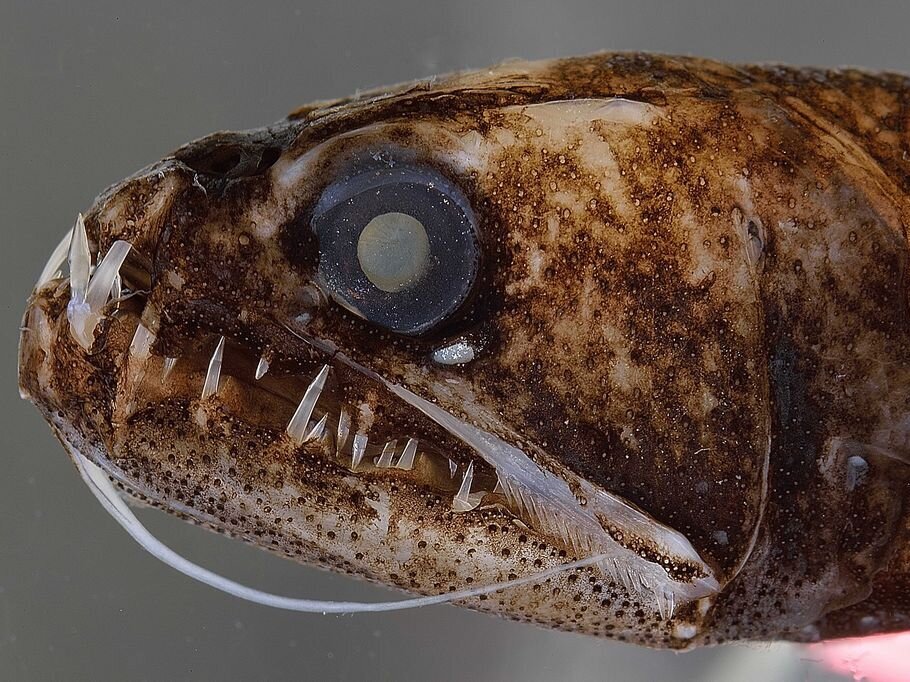On 20 August 2021 the research vessel "SONNE" set sail on an exceptionally long scientific journey due to Corona: The expedition started from Emden and takes the SONNE to the Benguela Current in South Africa and back. The crew - vaccinated and tested and without physical exchange with the outside world - is on the open sea until November 2.
Also on board is a team from the Thünen Institute of Sea Fisheries. On behalf of the EU-funded project TRAFFIC, our colleagues want to use a combination of different biological, molecular biological as well as biochemical methods to elucidate the role in the food web of the daily vertically migrating fish and squid of the twilight zone (mesopelagic). These mesopelagic animals in the ecosystem act as both predators and prey. They occur in large numbers and contribute significantly to the flow of compounds between deep zones through their extensive daily vertical migrations. Nevertheless, their role in food chains and in terms of resources of commercially exploited fishes has received little attention.
The sea log for this expedition SO285 gives you a deeper insight into the events on board.
In addition to the Thünen Institute, four other institutes from Germany as well as five institutes from Namibia and South Africa are involved in this research project. The TRAFFIC project focuses on the two subsystems of the Benguela upwelling system off Namibia and South Africa, which are among the most productive fishing zones on this planet. These coastal upwelling systems generate a significant portion of the global fisheries resources. An important project objective is to understand the reasons for the observed declines in fishery yields in the northern Benguela Current and the major changes also occurring in the southern portion, and to incorporate them into future sustainable management.
More information about the TRAFFIC project can be found here.

![[Translate to English:] [Translate to English:]](/media/_processed_/7/1/csm_IMG_7977_large_1defaf5de1.jpg)






